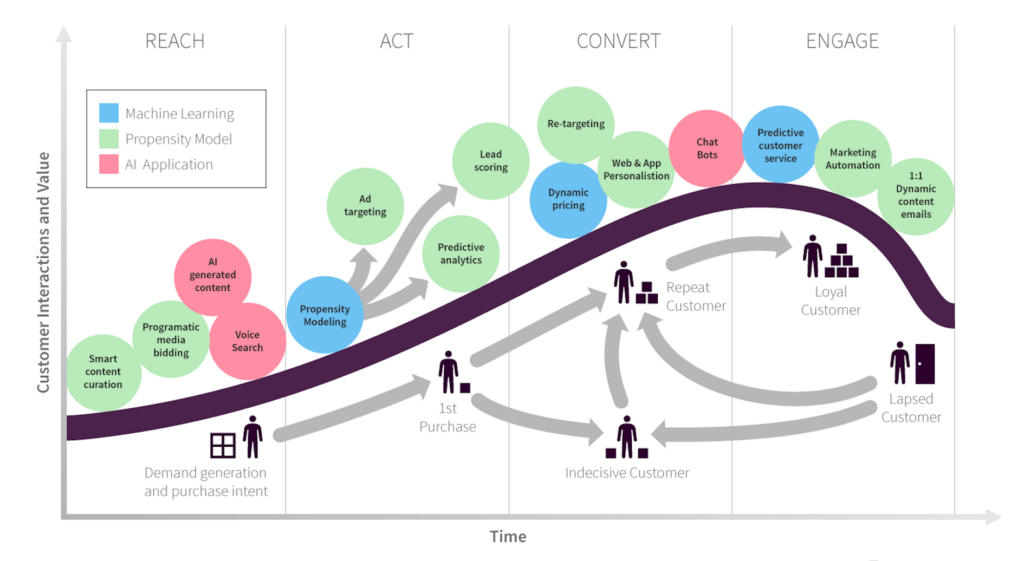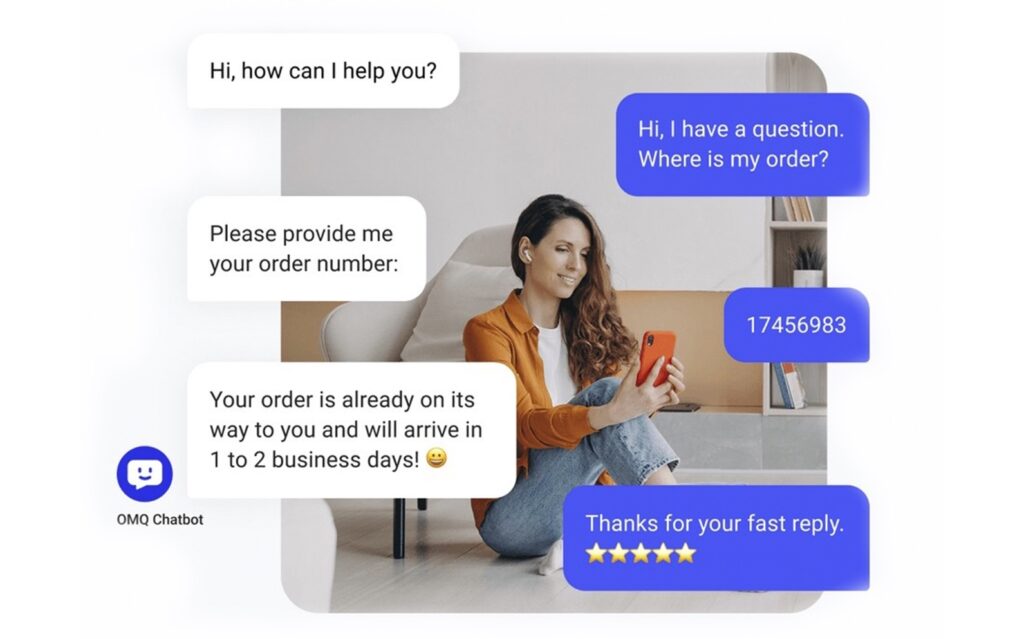How is artificial intelligence (AI) impacting the marketing landscape? What role does it play in customising campaigns? In today’s world, where every customer interaction matters, AI is becoming a tool for gaining insights and engaging with audiences. In this article, we’ll look at how AI makes marketing more adaptive and targeted and discuss the opportunities for personalising marketing strategies.
Analysing big data with artificial intelligence
In modern marketing, artificial intelligence (AI) has become an advantage to analyse and interpret large data sets. It allows marketers to dig deeper into the behaviour and preferences of their audience. AI analyses data efficiently, revealing patterns and trends that are not always obvious to the human eye.
- Predictive analytics: AI is used to predict future trends in shopping behaviour, helping brands adapt their strategies to meet customer needs.
- Content personalisation: AI helps create more targeted and personalised content based on user behaviour data.
- Campaign optimisation: AI allows marketers to more accurately determine the most effective marketing campaigns and tailor them to different audience segments.

(By Crossnetics)
Automating and optimising campaigns with AI
AI helps analyse data and plays a crucial role in automating and optimising marketing campaigns.
Automating customer
Interactions AI can automate routine tasks such as sending personalised emails, managing customer service chatbots and recommending products based on user preferences.
Optimising advertising campaigns
AI can analyse the effectiveness of advertising campaigns in real-time and suggest optimisations to improve ROI. This includes selecting the most effective distribution channels, target audiences and advertising messages.
Personalised interaction
AI can be used to improve the personalisation of customer interactions significantly. It can do this by offering content and offers that match customers’ interests and behaviours.

Applying artificial intelligence to digital marketing practices
In today’s world of digital marketing, Artificial Intelligence (AI) is finding more and more applications, helping companies achieve new levels of efficiency and personalisation. Let’s look at a few specific examples of how various companies successfully implement AI technologies to improve their marketing campaigns, optimise customer interactions and increase the overall effectiveness of their advertising strategies.
1. AI in chat bots
An example of AI implementation is chatbots that can interact with customers, answer their questions, and even guide them through buying. This improves the customer experience and can lead to increased sales.

2. Sephora: Personalised recommendations
Sephora uses AI-supported chatbots to provide personalised recommendations to customers based on their skin type, preferences and purchase history. This increases customer engagement and satisfaction and reduces customer service burden.

(Screenshot sephora’s chat-bot )
3. AI in Email Marketing
AI is also used in email marketing to analyse customer data and generate personalised emails, leading to more opens, clicks, and conversions.

4. Behr and HOLT CAT: Programmatic advertising
Behr and HOLT CAT are using AI to optimise their programmatic advertising. Behr, a paint manufacturer, uses AI to optimise the target audience of its advertising campaigns. HOLT CAT, a construction equipment supplier, uses AI chatbots to provide personalised customer recommendations, improving engagement levels.

Personalising content with Artificial Intelligence
Adapting content to audience interests
AI can analyse user data, including their search, browsing and purchase history, to create content that precisely matches their interests. For example, if a user frequently searches for travel information, AI can suggest articles or blogs, increasing the likelihood of reading and interacting with them.
Dynamic personalisation
Using AI, websites and mobile apps can dynamically change the content offered based on user behaviour. This means each user sees a unique set of real-time content tailored to their preferences and interests.
Effective customer engagement
AI helps offer personalised product recommendations based on previous purchases and customer behaviour. For example, online retailers can use AI to suggest additional products that customers may be interested in based on their purchase history.

These approaches can create more relevant content for a specific user, improve the overall user experience, and increase brand loyalty
Final thoughts
Considering the questions posed at the beginning, artificial intelligence is revolutionising marketing by providing new levels of personalisation and efficiency. From automating marketing campaigns to creating customer experiences, artificial intelligence opens the door to deep and meaningful customer interactions.
We encourage you to harness the power of artificial intelligence to enhance your marketing strategies. Experiment, explore and integrate artificial intelligence solutions to stay ahead of the marketing curve by creating unique and personalised experiences for your audience.
